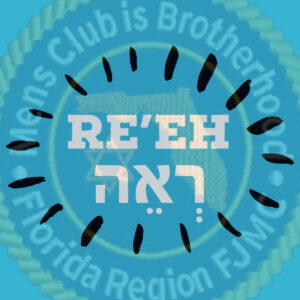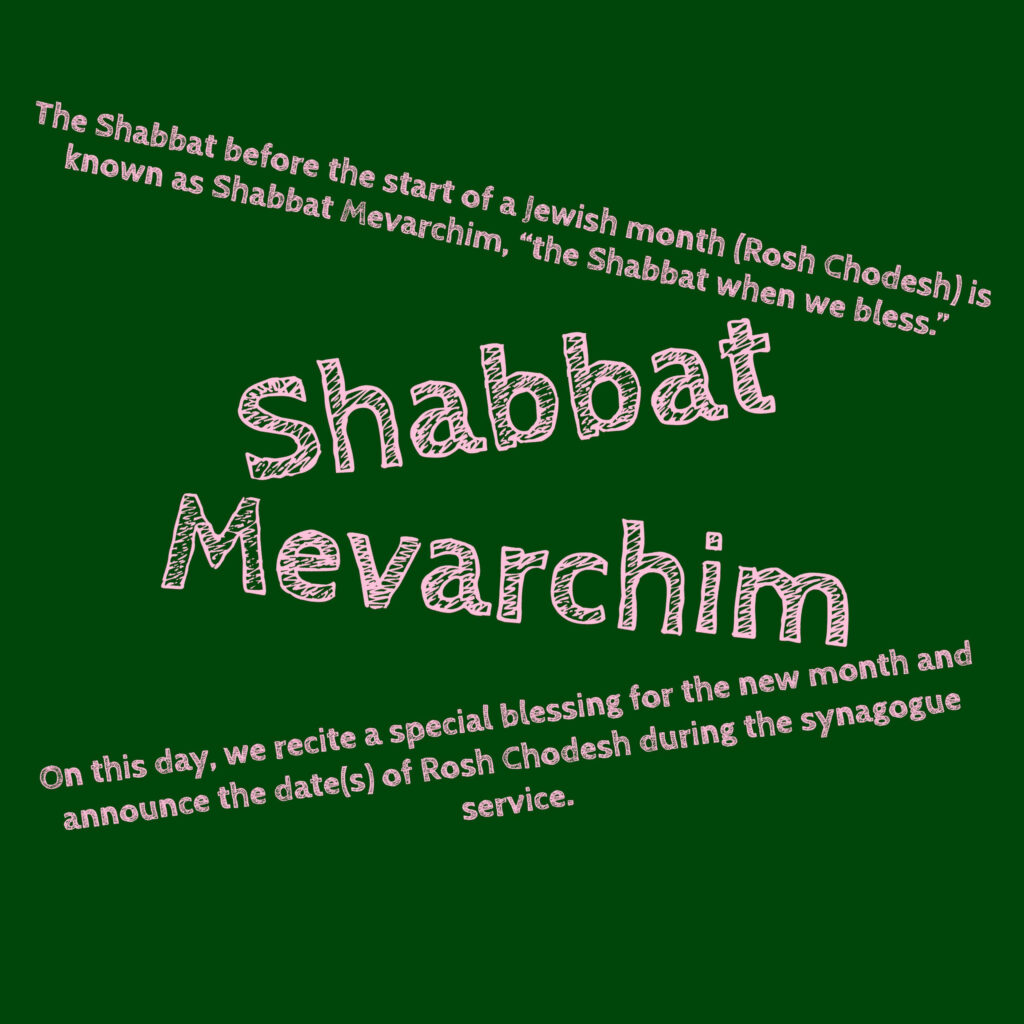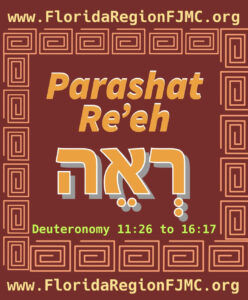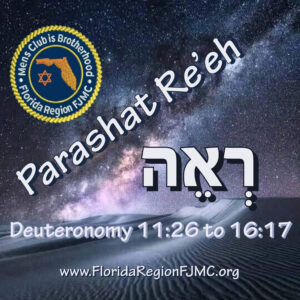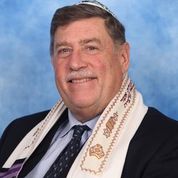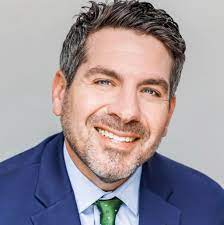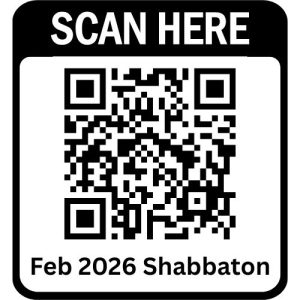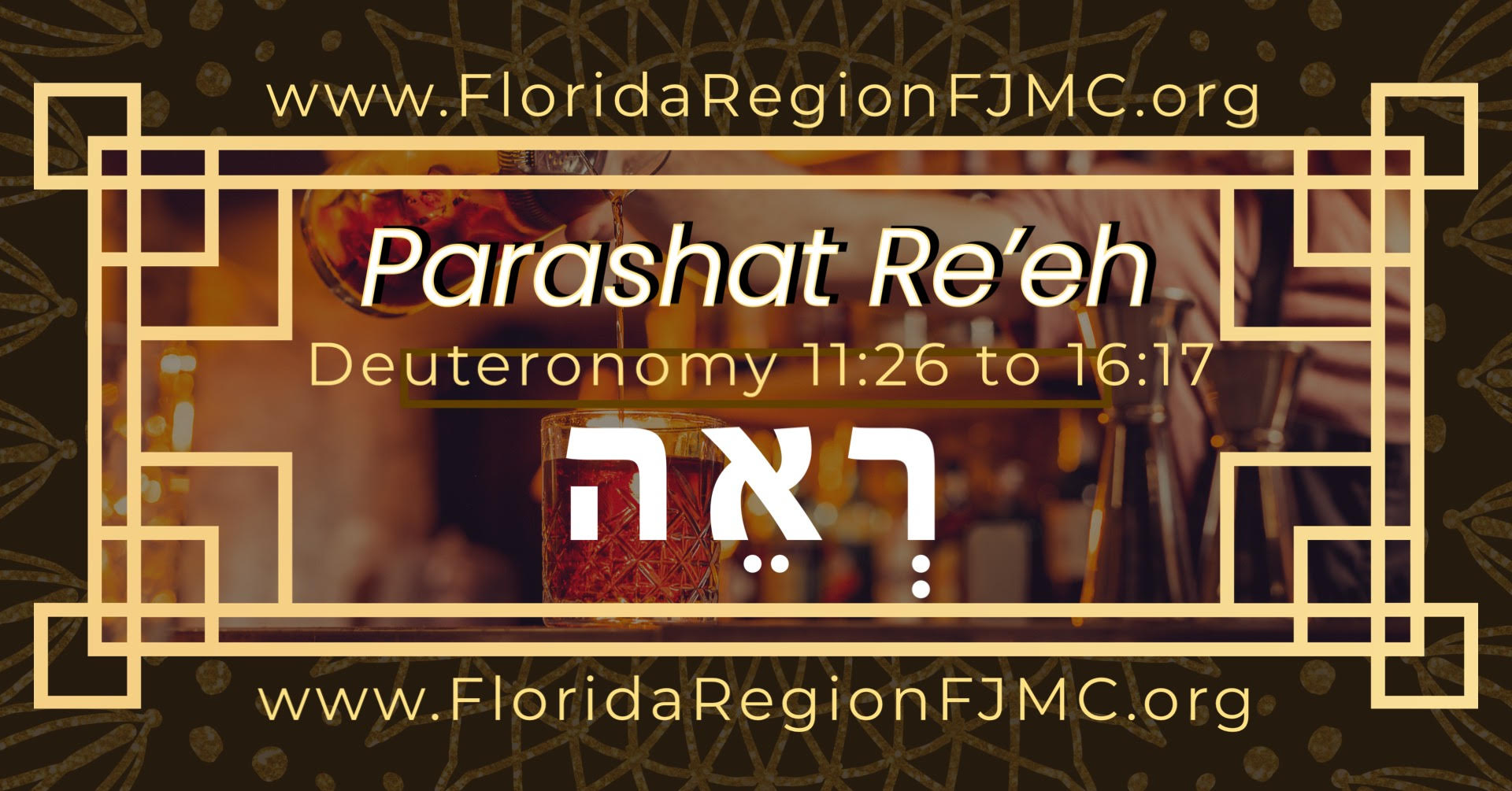
When you Choose Shabbat, you choose to learn that every Shabbat is different and special. This week we read from Parashat Re’eh (רְאֵה), the 47th weekly Torah portion in the annual cycle of Torah readings. According to Wikipedia, Re’eh (רְאֵה), Deuteronomy 11:26 through 16:17, contains 7,442 Hebrew letters, 1,932 words, 126 verses and makes up 258 lines of the Torah scroll, making it the longest Torah portion within the Book of Deuteronomy.
Re’eh is packed with source information straight from the mouth of Moses including the laws of kashrut and tithes, as well as instructions for the Sabbatical year and the Three Pilgrimage Festivals; Passover, Shavuot and Sukkot; collectively known as Shalosh Regalim (שלוש רגלים). Moses also instructs the Israelites in the importance of a single, centralized place of worship.
Because of its significance, portions of Parashat Re’eh are reread several times during the year. Deuteronomy 14:22 through16:17 is chanted on Shemini Atzeret. It is also the initial Torah reading on the eighth day of Passover and the second day of Shavuot when either holiday falls on Shabbat. In contrast, if the eighth day of Passover or the second day of Shavuot falls on a weekday, then the initial Torah reading is Deuteronomy 15:19 through 16:17.
Rabbi Michael D Klein of Temple Torat Emet offers his insights on this week’s Torah reading, Re’eh for Shabbat August 23, 2024 aka 29 Av 5785:
“The Torah portion begins with these amazing words from Moshe, “See that I have set before you this day a blessing and a curse”. Most of you know, that a year ago I had surgery for cataracts, which, Baruch Hashem, I was able to work through with the help of Hashem an a skillful surgeon. My vision before the surgery was very blurry but a few weeks after recovery 20-20! My vision before the surgery had deteriorated but I didn’t really recognize it until my ophthalmologist tested me and made me aware of it. Until then, I just kept using stronger and stronger reading glasses thinking that my vision was normal. What’s my point? Our view of life’s choices is similar to this narrative.
Moses is painstakingly pointing out that, unless we are aware of the acuity of our vision, the choices we make in our lives may be skewed in the wrong direction- so much so that it could lead us to fatal errors in judgement. We have been given the awesome power by G-d to choose our life’s path with free will and knowledge but, alas, unless our vision is clear our choices may be all wrong. If we choose the path of selfishness and lack of awareness of the gifts we have been given, then the choices we make will cause us to suffer through life with unnecessary pain. If we choose the path of mitzvot and gratitude then we are blessed with a meaningful and fulfilled life.
Like the metaphor of my cataract surgery , I didn’t realize that my vision was deteriorating. Many times we pass through our lives not realizing that the circumstances and conditions of our lives are also degraded and unhealthy. Moses is emphasizing this in Sedra Reeh. When our vision is clear our path in life is illuminated and each mitzvah empowers us to do another mitzvah. As we approach the forthcoming month of Elul, may our vision be clear and our path toward mindfulness and Teshuva become enlightened leading to a happier and more fulfilled conclusion of 5785.
Questions to Consider:
- Why are the laws of Kashrut included again in this particular Sedra?
- Why are the laws of observance of the holidays also included in this particular Sedra?
- Why does Moses choose particular landmarks on the road to Israel to represent blessing and curse?
- Is the vision to which Moses is referring, physical or spiritual or both?
Rabbi Michael D. Klein attended Yeshiva College of South Florida and served as Torah Reader, Hebrew teacher, Chazzan and spiritual leader of various synagogues throughout South Florida. In January 2015 he became Ritual Director, Bnai/Bnot Mitzvah instructor and 7th grade Hebrew instructor for Temple Torat Emet of Boynton Beach. In October 2019 he was accepted into an accelerated track and received his smicha from Yeshiva Adath Wolkowisk and has been the Rabbinic leadership of Temple Torat Emet since August 2020. In September of 2022 he was appointed Rabbinic and Spiritual Advisor of the Florida Region of FJMC.
Choose Shabbat; choose to celebrate, to light candles, sing songs and learn a little Torah.
This moment of Jewish Learning is brought to you by the Florida Region of FJMC International (FJMC). We serve the needs of affiliated Men’s Clubs and Brotherhoods throughout the State of Florida. Learn more about the FJMC Florida Region and our growing network of Jewish Men’s Clubs and Brotherhoods at: www.floridaregionfjmc.org and on Facebook at: www.facebook.com/FloridaRegionFJMC.
The FJMC is a confederation of over 200 Jewish Men’s Clubs and Brotherhoods representing over members throughout the United States, Canada, Latin America, and beyond. Learn how YOUR Jewish Men’s Club or Brotherhood can affiliate with the FJMC at: https://fjmc.org/for-clubs/affiliating-with-the-fjmc/.
